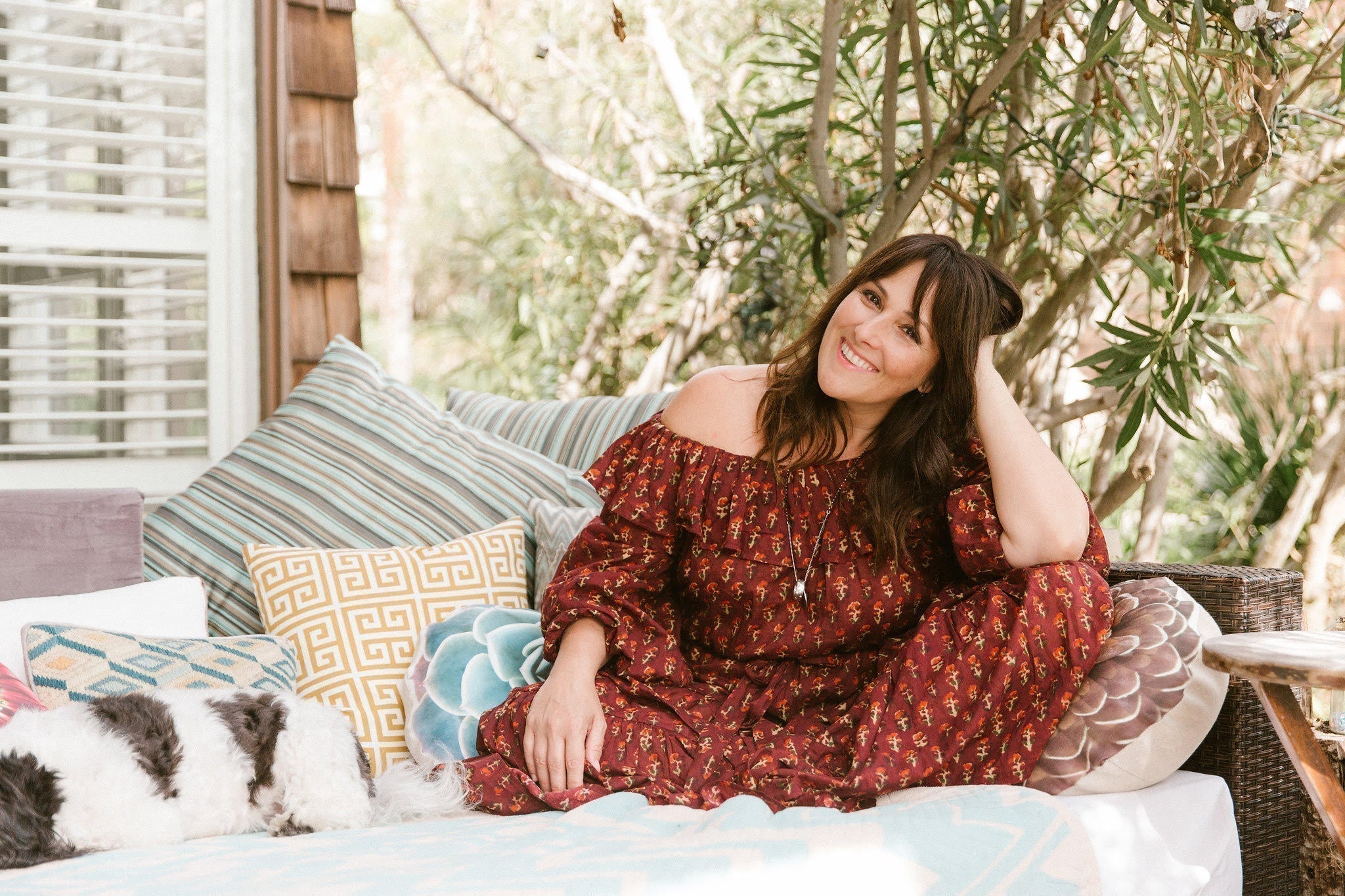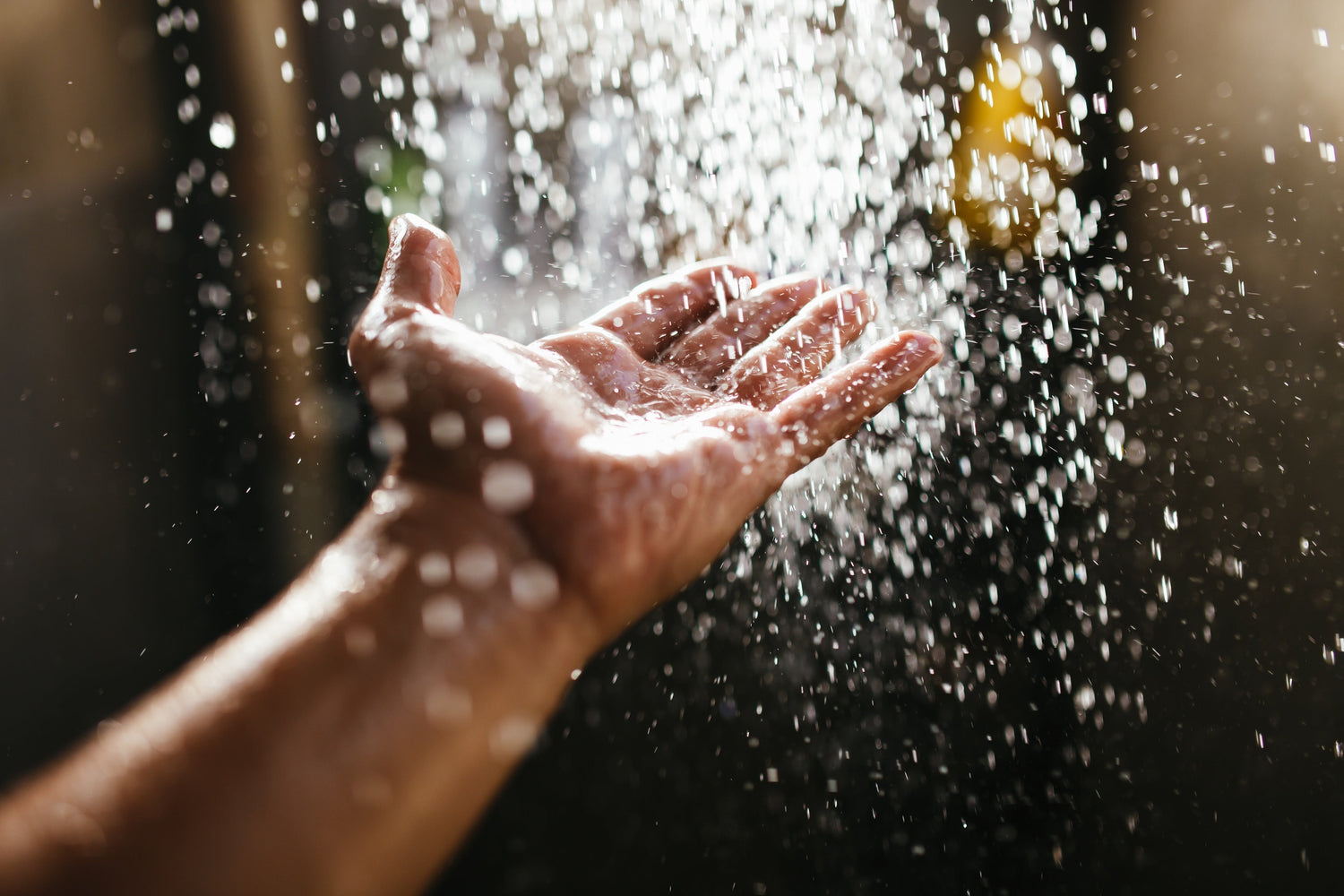Ricki Lake is a cultural icon whose work has long blended vulnerability, advocacy, and empowerment. From her early fame as an actress and groundbreaking talk show host to her recent achievements as a producer and documentarian, she’s used her voice to shine a light on what matters, especially when it comes to wellness and self-discovery. Her film, Weed the People, co-produced with her creative partner Abby Epstein, explores the use of medical cannabis for children battling cancer. It’s deeply personal, profoundly moving, and part of a larger mission: to advocate for integrative care and alternative healing paths.
We sat down with Ricki in 2019 to talk about self-care, the mind-body connection, and what it really means to love yourself.
MY RITUAL: Ricki Lake

Why is self-care important to you?
“Being a single mom for many years and having a lot of responsibility in my career, I’ve learned that you gotta take care of yourself first. These last few years I have slowed down significantly with my work, and I really have a balance—doing things that I love and playing hard. So it’s been a conscious effort for me to keep playing.”
What is your daily self-care ritual?
“I wish I could tell you about the products I use, but I don’t really wash my face—which is so funny because people comment on my skin all the time. I don’t have any ritual or skin routine. For me, self-care is more mindfulness—taking care of my mind and my body.
“I live at the beach in Marina del Rey and I take my dog on a two-mile walk or run every morning. That’s been really helpful for both my physical and mental health. Part of that is deep breathing; I force myself to get to the beach with my dog and be grateful. That’s a ritual I do every day when I’m home.”
Is there a product you never leave the house without?
“I take my CBD with me everywhere—always a whole-plant, full-spectrum oil. Even though I don’t always feel the effects, knowing the science behind it, I feel good knowing it’s firing off the cannabinoids in my body.”
What inspired you to make Weed the People?

“Back in 2011, my now-deceased husband, Christian Evans, was extremely passionate about the science behind cannabis and CBD. He was doing a lot of research on the topic. At the same time, I met a little girl who was a fan of mine when I was on Dancing with the Stars, and she was very sick.
“Christian and I decided to help her. We moved her and her family into our house for six weeks, and we went on this journey to find integrative care for her with cannabis. That was the start of Weed the People. She was the catalyst. We just fell in love with her—she was so special to us. We wouldn’t have this beautiful film without her and without Christian’s interest in the medical aspect. This film is my husband’s legacy.”
What did you learn from making the film?
“I learned the most from the families—their bravery. We didn’t know whether the kids would live or die, and these families allowed us to follow them through everything, even with cameras in their faces during the hardest moments, like when they found out their child’s tumors were growing.
“There’s a huge responsibility that comes with that—to take years of footage and use those stories to make an impact.”
Can you talk about the mind-body connection in your own words?
“I have a lot of thoughts and beliefs about the mind-body connection—the brain-gut connection. Last year, I had a health scare. I got sciatica out of nowhere. I didn’t fall or have an injury, but suddenly I couldn’t move. My whole right side was seizing up. It was the scariest thing.
“I got an MRI, did everything the traditional medical system told me to do, and nothing helped. I decided I no longer wanted to live in pain. I read a book by Dr. Sarno called Healing Back Pain, which basically said that my pain was emotional—that these symptoms are directly connected to repressed emotions.
“I literally healed myself in six weeks. It was transformative. At one point, I didn’t think I would ever walk normally again. But I began to understand that I was feeling fear instead of love—and that at the root of it was the grief from losing my husband. I didn’t even know I was filled with rage, because I didn’t feel it. But my body was holding on to it. It’s all connected. Understanding the mind-body connection helped me learn how to heal myself.”
How did you know how to heal?
“My psychotherapist, Nicole Sachs, teaches this TMS method. It’s all about journaling and getting your feelings out in order to heal. She said to me, ‘This is a process, but you have to really believe that you are well—and believe that you can heal—in order to get there.’”
What words of advice have stuck with you?
“John Waters gave me advice when I was eighteen, just before shooting Hairspray. I constantly remind myself of what he told me: ‘Always stay humble. Always stay true to yourself. And if you’re going to read and believe the good things people write about you, you’re going to have to read and believe the bad.’
“This was back before we even had the Internet—maybe he meant newspaper reviews—but it’s kept me grounded ever since.”
What’s one thing you wish you could tell your younger self?
“I think I’d tell myself: ‘Lighten up.’ I always loved myself, but I was really hard on myself and had some insecurities.”
What does self-love mean to you now?
“I’m truly living it these days, ever since I lost my husband. I’m proud of the mother I am. I’m proud that I was able to support so many people and myself and go through this crazy ride.
“I genuinely like and love myself, but since Christian died, I see myself in a different light. I really value myself in a way I didn’t before. It’s almost like I’m loving myself the way he loved me. I’m in a new relationship now, and I value myself more than ever. I know what I bring to the table. I care about myself because of how Christian loved me.”
Closing Thoughts
Ricki Lake’s story is a testament to the healing power of self-love, emotional honesty, and natural wellness. At Prima, we share her belief that true well-being comes from nurturing the mind, body, and spirit in harmony. Whether it’s through daily mindfulness, movement, or trusted tools like CBD, we’re here to support a new standard of self-care—one that embraces personal transformation and empowers us to live with intention, presence, and compassion.





